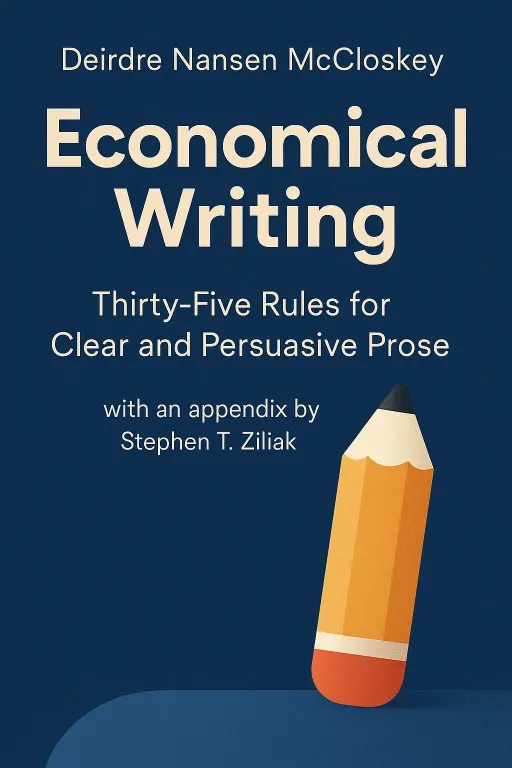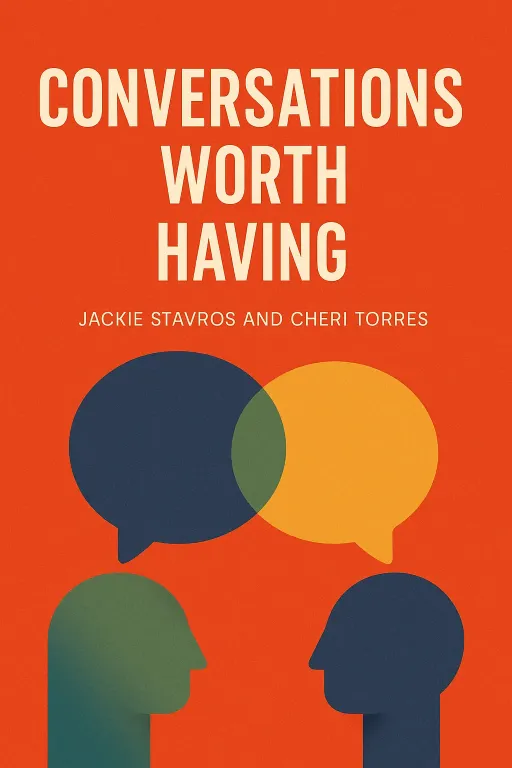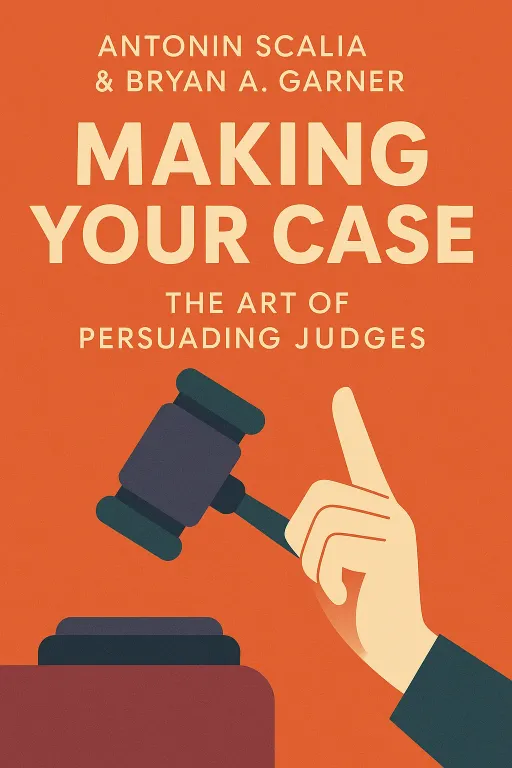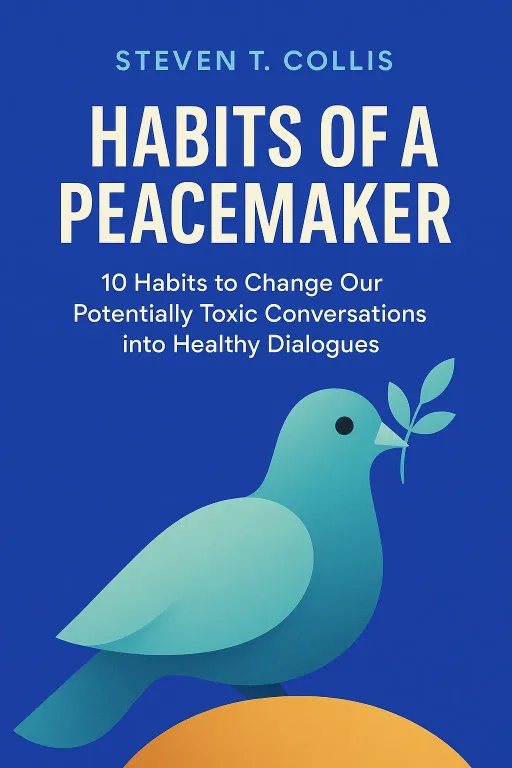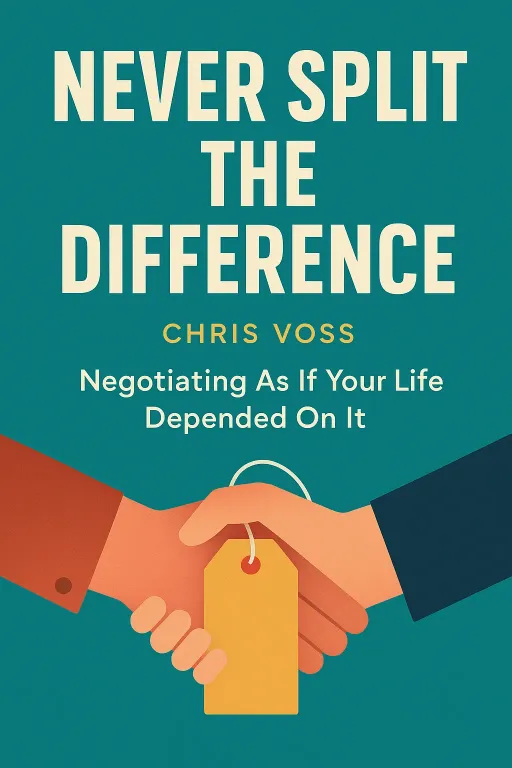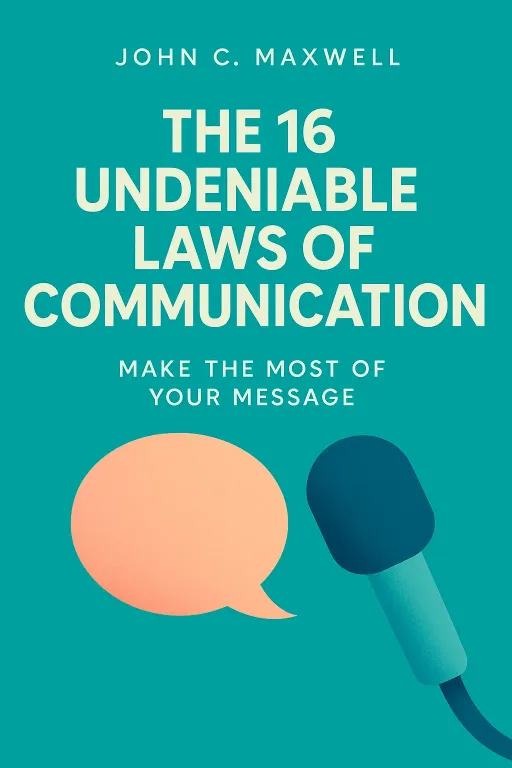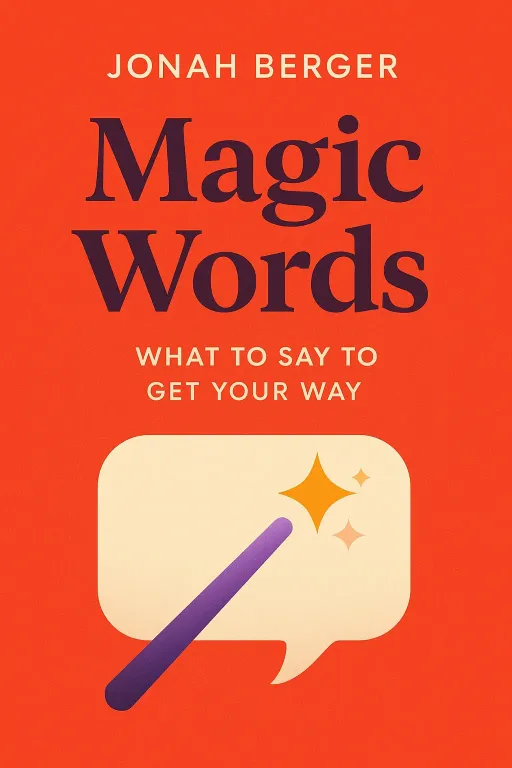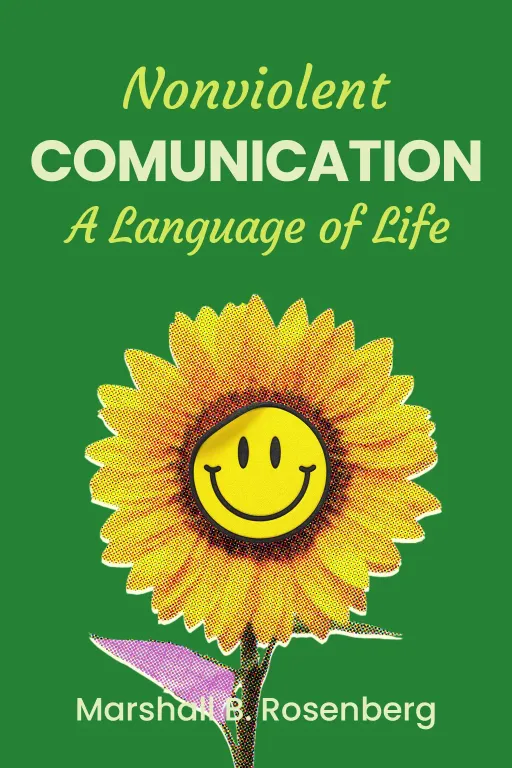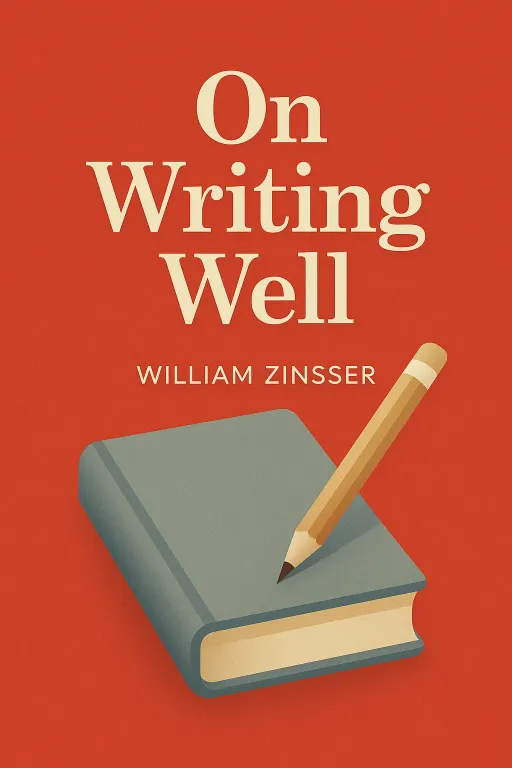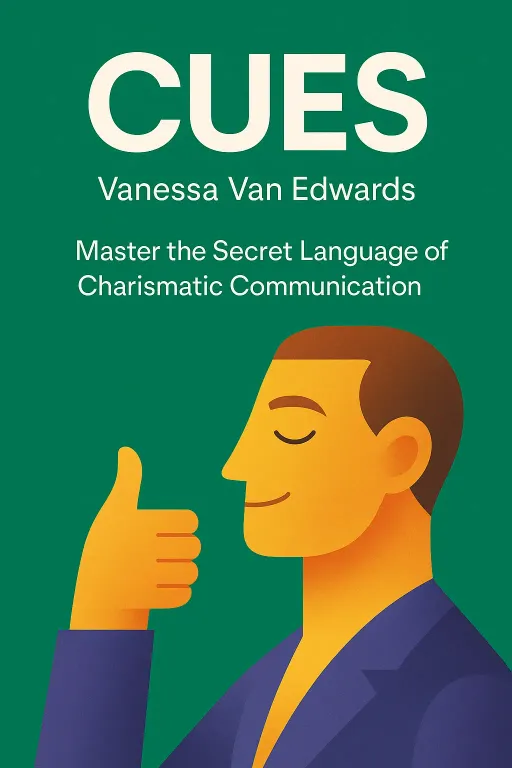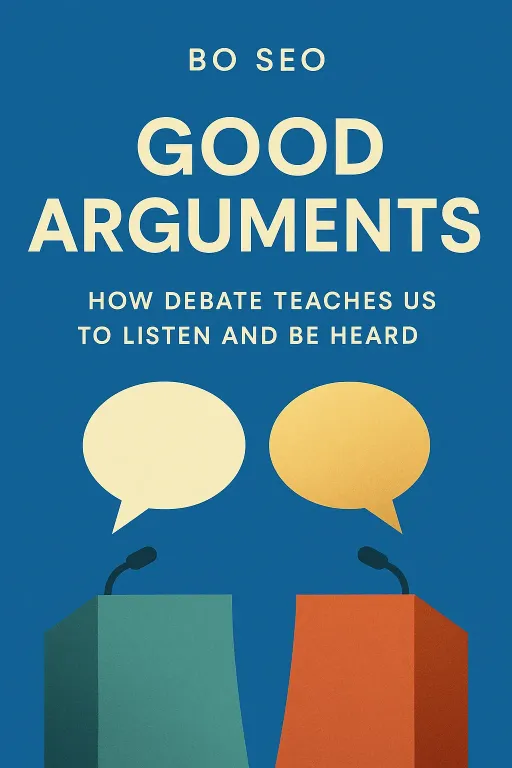
The Lost Art of Disagreement
13 minHow Debate Teaches Us to Listen and Be Heard
Golden Hook & Introduction
SECTION
Michelle: A recent study found the average American household has 217 arguments a year just about doing the dishes. Mark: That’s 18 a month! I feel personally attacked. It sounds like we’re experts at disagreeing, but what if we’re just experts at being miserable about it? Michelle: Exactly. And that's the central question in a fascinating book we're diving into today: Good Arguments by Bo Seo. It suggests that disagreement itself isn't the problem. The problem is that we’ve forgotten how to do it well. Mark: Right, and this isn't just some academic writing a textbook. Bo Seo is a two-time world champion debater. What's incredible is that he started as a shy kid who immigrated from South Korea to Australia and literally lost the ability to disagree because he was so afraid of conflict. His journey from silence to world champion is the heart of this book. Michelle: It really is. He frames debate not as a gladiator sport, but as a structured, even beautiful, way to connect with people. He argues that good arguments are the foundation of healthy relationships, thriving societies, and even our own personal growth. Mark: Which feels like a pretty bold claim in a world that seems to be tearing itself apart with bad arguments. So, where do we even start to fix this?
The Lost Art of Disagreement: From Personal Fear to Public Forum
SECTION
Michelle: Well, Bo Seo starts with his own story, which is so powerful because it gets to the emotional root of why we avoid arguments. When his family moved to Australia in 2003, he was a young boy plunged into a new culture, a new language. He felt completely alienated. Mark: I can only imagine. That’s incredibly tough for a kid. Michelle: He describes this gradual erosion of his ability to disagree. It wasn't a single event. It was this slow, creeping realization that being agreeable was a survival mechanism. He learned to wear what he calls a "distant smile," to say "yes" and "okay" to everything, just to avoid conflict and the feeling of being an outsider. Mark: Wow. He basically trained himself to be invisible to stay safe. That's heartbreaking. Michelle: It is. And he became known for it! He got praise for his "sunny disposition" and for being so easy to get along with. But it came at the cost of his own voice, his own identity. He writes about this profound sense of disconnect, not just from others, but from himself. Mark: And we see a version of this everywhere, don't we? Maybe not as extreme, but people either shout their opinions from the rooftops or they just completely check out of the conversation to keep the peace. There's no healthy middle ground. Michelle: Precisely. The book cites this wild study about Thanksgiving dinners after the 2016 election. Researchers found that when families with opposing political views got together, the dinners were cut short by thirty to fifty minutes. People literally chose less time with family over the risk of a bad argument. Mark: They chose bad turkey over bad arguments. I get it. So what was the turning point for Seo? How does someone go from being terrified of disagreement to becoming a world champion at it? Michelle: It was a single moment in fifth grade, in 2005. His teacher, Ms. Wright, announced a new school activity: debate. She described it as a "structured argument... a battle of the wits!" And Seo, who had spent years avoiding arguments, found himself volunteering. Mark: Hold on, why would he volunteer for his worst nightmare? Michelle: That's the fascinating part. He says he volunteered to avoid disagreeing with the teacher's enthusiastic call for participants. The irony is thick. But what happened next changed everything. The topic was "That we should ban all zoos." His team had to argue for the ban. Michelle: He spent days researching, preparing. He was terrified. But when he got up on that stage, in the school's assembly hall, something shifted. For the first time, he was in a space where disagreement wasn't just allowed; it was the entire point. There were rules, there was a time limit, there was a clear topic. It was safe. Mark: The structure created the safety. It wasn't just a chaotic, emotional free-for-all. Michelle: Exactly. He delivered his speech, and he describes this feeling of empowerment, of rediscovering his voice. He writes, "I had spent years avoiding arguments. Had my mistake been not to run toward them?" It was this profound realization that structured disagreement could be a form of self-discovery. It set him on a path that led to winning two world championships. Mark: That’s incredible. So the book’s first big idea is that we’re not afraid of disagreement itself, but the lack of a safe, structured way to do it. We fear the chaos, not the conflict. Michelle: That's the core of it. We need a container for our disagreements. Without one, they spill over and become personal, messy, and destructive. With one, they can become constructive, clarifying, and even connecting.
The Anatomy of a 'Good' Argument: Beyond Truth to Importance
SECTION
Mark: Okay, so if structure is the answer, what does a 'good' argument actually look like inside that structure? I feel like I just state facts I know are true and still get absolutely nowhere with people. Michelle: Ah, you've just hit on the book's second major insight, and it's a game-changer. Seo argues that every good argument has to meet two burdens of proof. The first is what you're talking about: Truth. Is your claim factually correct or at least believable? But the second, and the one we almost always forget, is Importance. Mark: Importance? What do you mean? Michelle: It means you have to show why your claim matters to the conclusion you're trying to reach. You have to build a bridge between your fact and the point you're making. And he learned this the hard way. Mark: Another story, I'm guessing? Michelle: A great one. In 2010, he's a teenager trying out for the state debating team. He's ambitious, he's practiced. The topic is the death penalty. He gets up and gives this fiery, passionate speech, saying things like, "The death penalty is murder carried out by the state!" He’s full of conviction. Mark: Sounds like a solid start. Michelle: You'd think so. But then his opponent, a girl named Debra, gets up and calmly dismantles him. She says, and this is a killer line, "What you heard from the previous speaker were not arguments. Those were assertions. He never gave you any reasons to believe what he said. He just told you what he believed and used a lot of emotive words. Well, I’m sorry, but that doesn’t cut it in a debate." Mark: Ouch. That is a public takedown. Michelle: A brutal one. And it taught him a crucial lesson. An argument isn't just a slogan or a feeling. It's a conclusion justified by a claim, which is then supported by reasons and evidence. He had the conclusion—"the death penalty is bad"—but he hadn't provided the logical steps to get there. Mark: He just jumped straight to the end. I feel like that's 99% of arguments on the internet. People just shouting their conclusions at each other. Michelle: Exactly. And the book has a perfect, everyday example of this. A friend of his, Joanna, tried to convince their friend group to go vegetarian. She presented all this harrowing evidence about animal abuse in industrial farming—videos, statistics, the works. Mark: Okay, so she's meeting the 'Truth' burden. The facts are horrible and true. Michelle: Absolutely. And they were all convinced of the truth of her argument. Seo even tried being a vegetarian for a few weeks. But it didn't stick. Why? Because while he believed it was true, he wasn't convinced of its importance to his own life. She never built the bridge to show why he, Bo Seo, should change his daily habits. Mark: Ah, so she proved the problem was real, but not that it was his problem to solve in that specific way. That is such a useful distinction. It’s the difference between saying "Climate change is real" and saying "Here is why this specific policy will benefit our community and is the most effective use of our resources right now." Michelle: You've got it. That's the whole game. And to help with this, Seo introduces a simple framework he developed, the "Four Ws" of argument building: What, Why, When, and Who Cares? What is your point? Why is it true? When has this happened before? And the knockout punch: Who cares? Why does this matter? Mark: Who cares? I love that. It’s so blunt. It forces you to connect your argument to the listener's world. It’s not about you being right; it’s about making your rightness relevant to them. Michelle: That's the essence of persuasion. It’s an act of empathy.
The Modern Battlefield: Defeating Bullies and Choosing Your Fights
SECTION
Michelle: But these tools—the Four Ws, the burdens of truth and importance—they all assume the other person is arguing in good faith. Mark: Which, let's be honest, is a pretty big assumption these days. What happens when you're arguing with a troll, or a political bully, or just someone who has no interest in a 'good' argument? Michelle: This is where the book gets incredibly practical and, frankly, essential for modern life. Seo dedicates a whole section to what he calls "Self-Defense." He says you first have to identify what kind of bad-faith arguer you're dealing with. He lays out these brilliant archetypes. Mark: Like a field guide to internet trolls? I'm in. Michelle: Totally. There's 'The Dodger,' who constantly changes the subject. There's 'The Twister,' who misrepresents your argument into a strawman you can't defend. There's 'The Wrangler,' who nitpicks definitions and details to avoid the main point. And then there's the most straightforward: 'The Liar.' Mark: I think I've dated all four of them. So once you've identified the bully, what do you do? You can't use the Four Ws on someone who's just trying to exhaust you. Michelle: You can't. And this is where the book's most powerful tool comes in. It’s a mental checklist Seo developed to decide if a disagreement is even worth having. It's an acronym: RISA. Mark: RISA? Okay, break it down for me. Michelle: R is for Real. Is the disagreement genuine, or is it based on a misunderstanding? Sometimes just clarifying what you mean can dissolve the whole thing. I is for Important. Is this actually worth the time and energy? Arguing about whether pineapple belongs on pizza is probably not an important disagreement. Mark: I disagree, but continue. Michelle: (laughing) S is for Specific. Can you define the boundaries of the argument? If it's a vague, sprawling complaint like "You never listen to me," you can't win. You have to narrow it down to a specific instance. And A is for Aligned. This is the most crucial one. Are both parties aligned in their goal? Do you both want to find a solution, or does one person just want to vent, prove they're right, or hurt the other? Mark: That 'Aligned' one is everything. If the goals aren't aligned, you're not having a debate. You're just in a fight. And no framework is going to fix that. Michelle: Exactly. The RISA checklist is your exit ramp. It gives you permission to walk away. The book argues that choosing not to engage in a bad argument is one of the most advanced debating skills you can learn. Mark: That’s so counterintuitive. We think of great debaters as people who can argue anything, anytime. But Seo is saying the real masters know when to stay quiet. Michelle: Yes. And he's honest that even with these tools, it's hard. He tells a story about an argument with his roommate, Jonah, that starts over him being late for lunch. He tries to apply RISA in his head, but his ego gets in the way, the argument spirals, and it becomes this huge, messy thing. It’s a great reminder that these are skills, not magic spells. They require practice and humility. Mark: That makes it feel more real. It’s not about being a perfect, logical robot. It’s about being a more conscious, intentional human. It's interesting, though, the book has received somewhat mixed reviews. Some readers find it incredibly empowering, but others seem to think it's a bit idealistic for the trenches of modern politics. Michelle: I think that's a fair point. The strategies work best when there's at least a sliver of common ground or a shared desire for resolution. When you're up against pure nihilism or performance art, it's a different beast. But Seo's point is that we have to start by fixing our own side of the street. We can't control the bullies, but we can control whether we engage with them and how we conduct ourselves in the arguments we do choose to have.
Synthesis & Takeaways
SECTION
Mark: So when you put it all together, it feels like a journey. It starts with looking inward at your own fear of conflict. Michelle: Right. You have to build your own internal "safe structure" first, understanding why you react the way you do. That’s step one: overcoming the fear. Mark: Then, step two is learning the actual craft. The mechanics. Understanding that an argument needs to be both true and, crucially, important. It’s about building that bridge to the other person. Michelle: And finally, step three is developing the wisdom and strategy for the real world. Knowing how to spot a bad-faith argument, using the RISA checklist to decide if it's worth your energy, and having the strength to walk away. Mark: It seems the goal isn't to win more arguments, but to have better ones. To make the disagreement itself more valuable than silence or a hollow victory. The book's title is perfect—it’s about having good arguments, not just winning them. Michelle: Exactly. It’s about disagreeing in such a way that the outcome of having the disagreement is better than not having it at all. That's the ultimate test. Mark: That really reframes everything. It makes me think about the last pointless argument I had. I wonder, which of those tools could have changed it? Was it not Real? Not Important? Or were our goals just not Aligned? It’s a powerful question to ask. Michelle: It is. And we’d love to hear what you think. What was the last argument you had, and looking back, does the RISA framework change how you see it? Let us know on our social channels. We’re always curious to hear how these ideas land in the real world. Mark: For now, I think the biggest takeaway is that a good argument isn't a war. It's a dance. And Bo Seo has given us some incredible new steps. Michelle: This is Aibrary, signing off.
